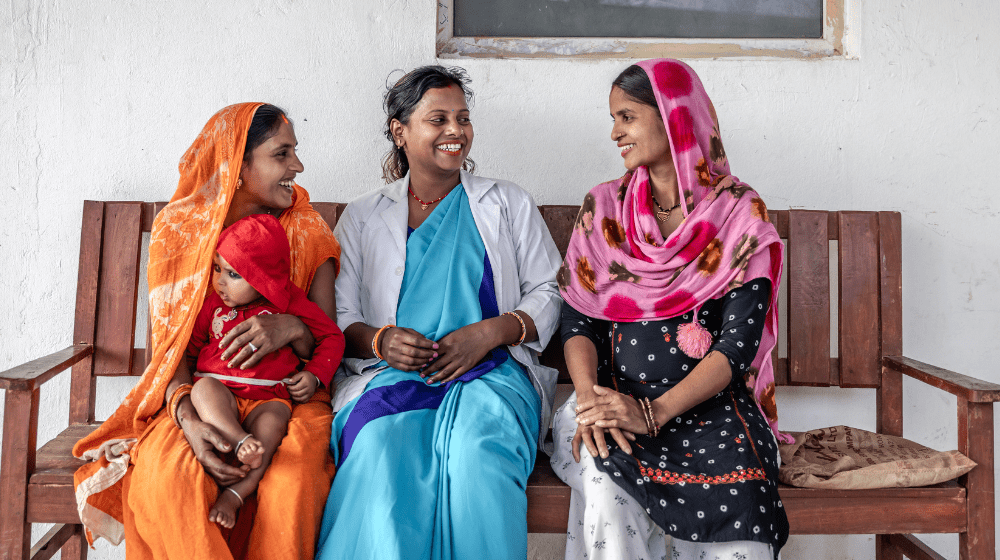This International Women’s Day, we’re calling for increased investments for gender equality, for safe spaces, for uninterrupted access to essential and lifesaving sexual and reproductive health, and investments to empower women to choose if and when to have children, to give birth safely and to live lives free from violence. This will not only benefit women and girls, but also lead to a healthier and more prosperous and peaceful world for all. But why invest in women and girls? When women’s potential is unlocked, everyone gains. Read the short stories below to find out how:
Jeevan Kumari Sah
Jeevan Kumari Sah is one of Nepal's first UNFPA-supported midwife graduates. Working tirelessly in a health post in Dhanusa district, she provides vital antenatal care, assists in deliveries, and shares knowledge on family planning and immunization. Jeevan highlights the barriers that many skilled women in Nepal face: limited resources, inadequate support systems, and a lack of understanding about essential professions like midwifery. Investing in women like Jeevan means breaking down these barriers, and empowering the community. With her dedication, she ensures that women in her community have access to the healthcare they need to make informed choices about their bodies and their families.
Rupa
Meet Rupa, a 17-year-old from Bajura, Nepal, who once faced discrimination and was restricted by harmful practices like chhaupadi within her own family. But thanks to her participation in UNFPA-supported programmes and her parents' attendance at Family Dialogues, Rupa lives a different life today. Rupa's family now understands the importance of treating sons and daughters equally. They've abandoned discriminatory practices and wholeheartedly support Rupa's dreams and ambitions. "My family and I live very differently now," Rupa says. "They understand my worth and understand the harm caused by valuing sons over daughters.” Rupa's story tells us that we can end gender-based violence and the harmful norms that fuel it if we invest and commit to breaking down barriers.
Barsha Karki
Meet Barsha Karki, a counselor for survivors of gender-based violence in Morang district of Koshi Province in the east of Nepal. Supported by UNFPA with funding from the Swiss Agency for Development Cooperation and the Royal Norwegian Embassy, Barsha often meets with families navigating through conflicts, and she responds with support and guidance. With each home visit, every awareness programme, and every referral, she guides survivors to break free from violence and abuse. "Many women do not know what to do when facing violence, so I guide them" Barsha explains. This has earned her gratitude and respect within her community. Her work demonstrates that GBV can be addressed through support, knowledge, and relentless advocacy. Let's invest in more women like Barsha.
Umme Sallama
Umme Sallama’s ‘Rupantaran’ (transformation) began from within. Supported by UNFPA through the Global Programme to End Child Marriage, 15 year-old Umme from Lumbini Province is now empowering other girls to challenge and end child marriage in her community. Through education and support, she found her voice and is now an inspiration to other girls, showing them that they have the power to shape their own futures. "I used to be restricted...I couldn't even leave the house," says Umme Sallama, "but now I speak out against child marriage and inspire others. I am proof that traditions can evolve, and that girls can have freedom and opportunity while respecting our culture.” Her story proves that investing in girls' education and empowerment leads to a ripple effect of positive change.
These short stories prove that investing in women and girls like Jeevan, Rupa, Barsha and Umme leads to a ripple effect of positive change within families and communities at large. As we commemorate International Women's Day 2024, marked on 08 March around the world, let's continue to invest in women and girls to enable them to unleash their potential and accelerate progress for all.


